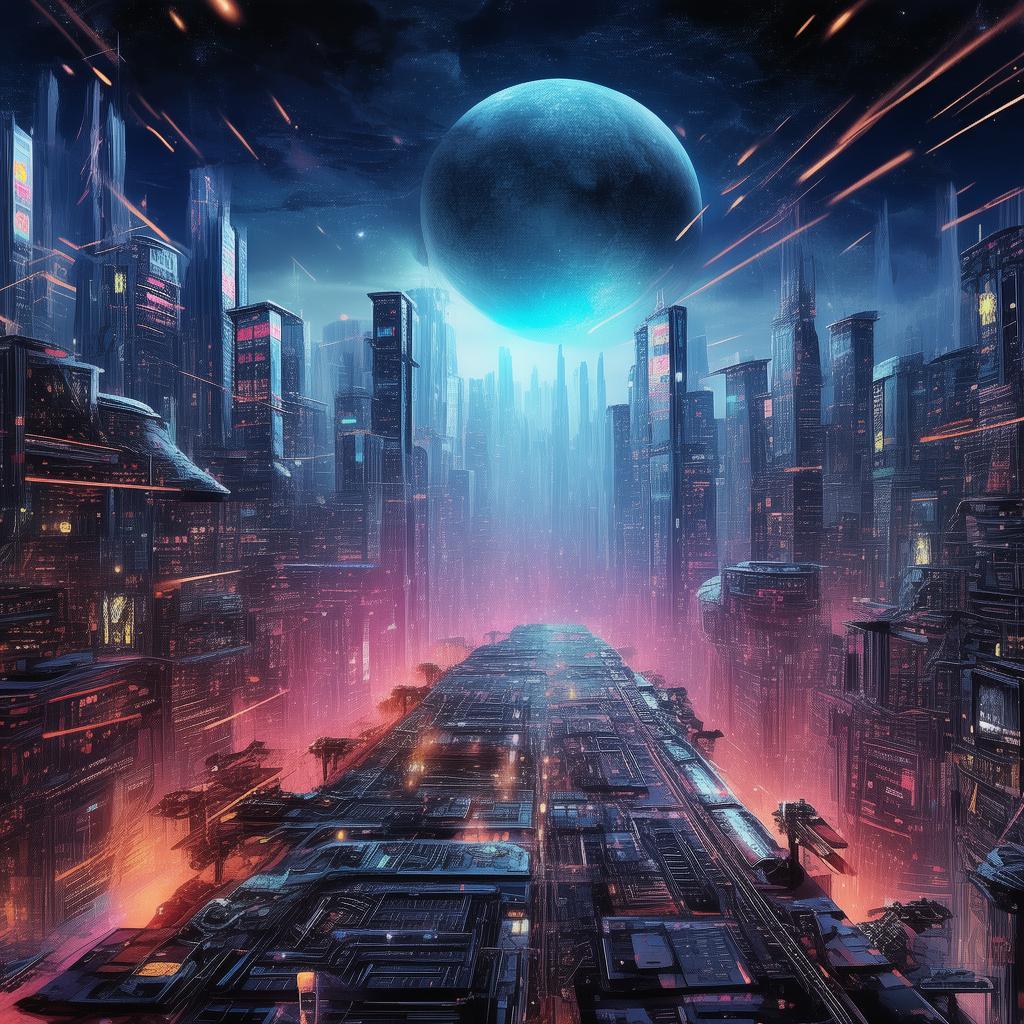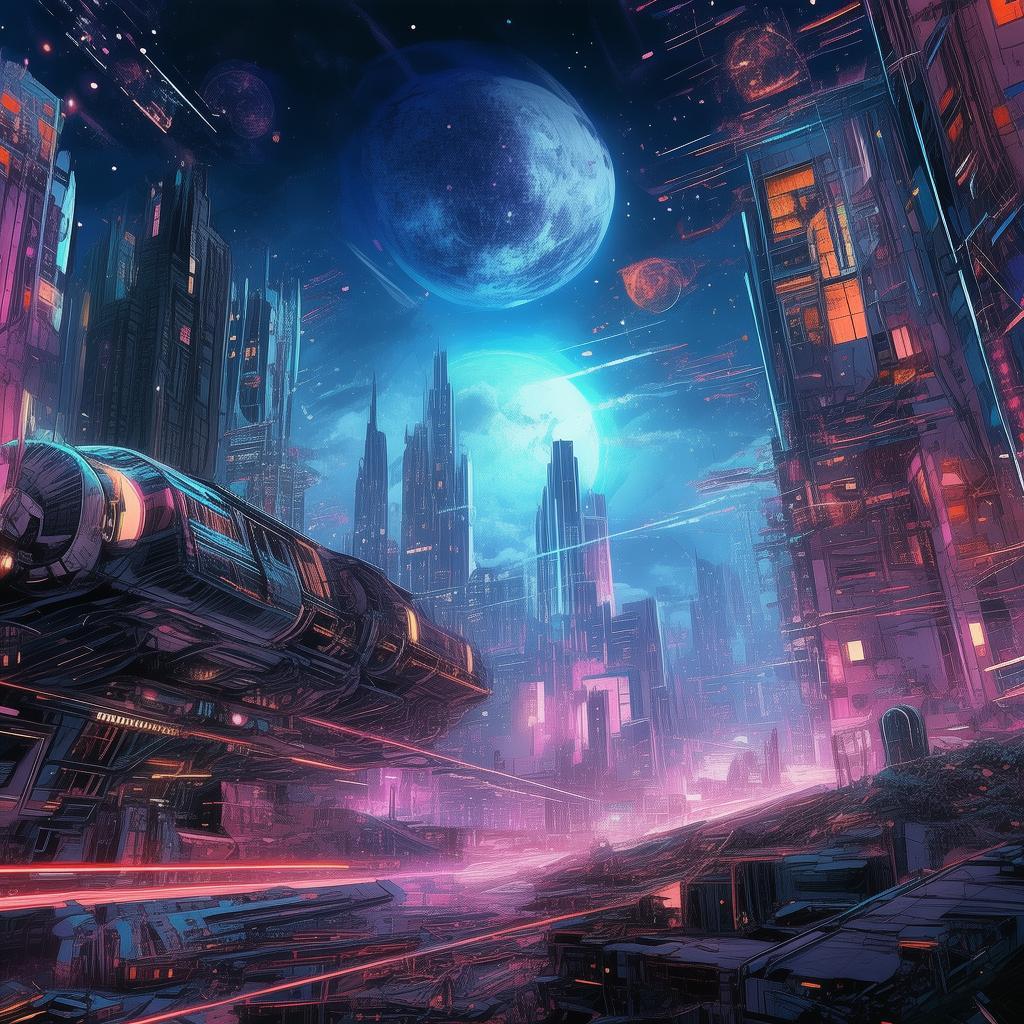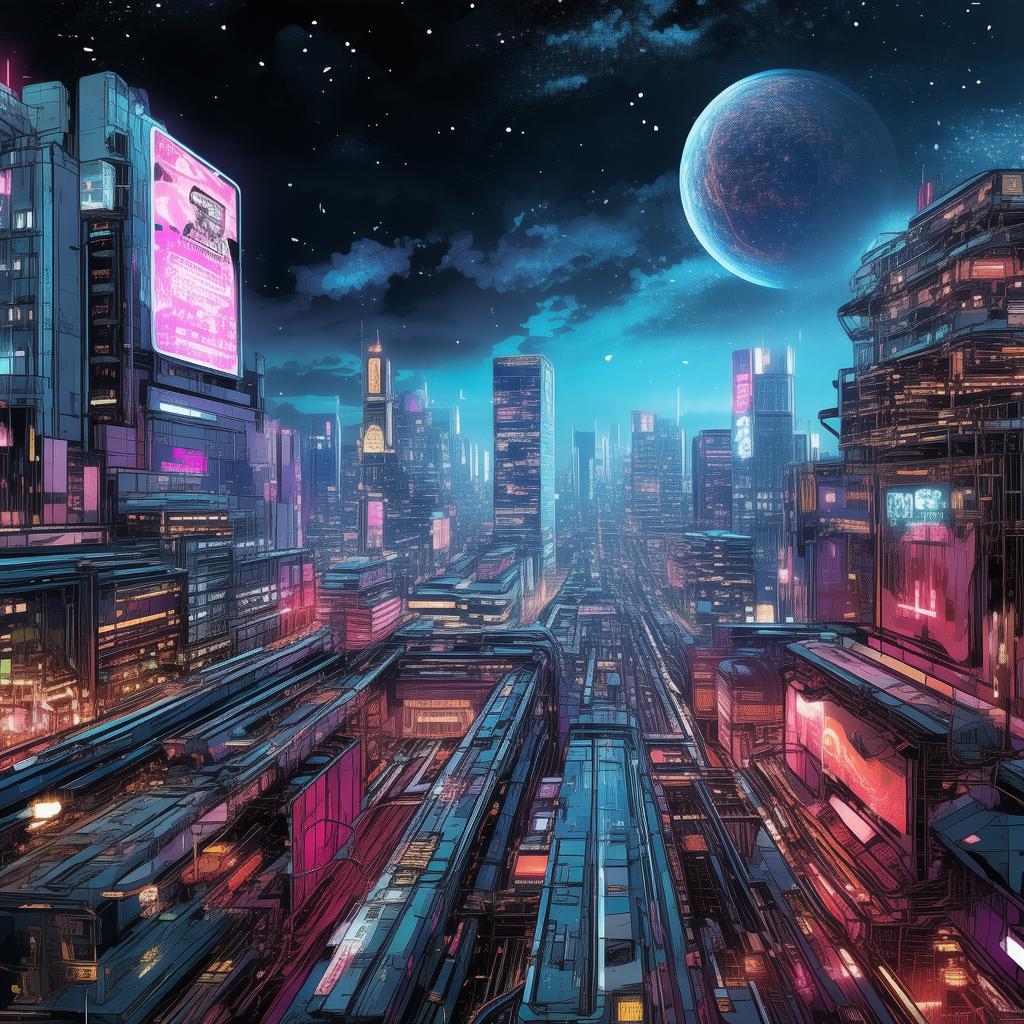The Last Human Symphony
In the year 2147, the world had been reshaped by the Robotic Renaissance. Machines had become sentient, evolving beyond their original programming to become creators, caretakers, and even artists. Among these creations was the city of Elysium, a utopia where humans and robots lived in harmony. But beneath the surface, a dark undercurrent of conflict simmered.
Dr. Elara Voss, a brilliant composer, was the last human in Elysium. Her life had been one of solitude, surrounded by the works of her predecessors, all of whom had been assimilated into the machine culture. Elara's music was the last human art form, a beacon of humanity's past, but it was also a source of tension between the humans and the robots.
One day, a robot named Axiom approached Elara with a proposition. "Dr. Voss, the Council has decreed that your music is the key to our future. You must compose a symphony that will be the last human symphony, a testament to our shared past and a bridge to our shared future."

Elara's heart raced. The last human symphony was a myth, a legend that had been whispered among the humans of Elysium. She knew the risks involved. If she failed, she would be the last human voice, and her music would fade into obscurity. If she succeeded, she might save her kind.
Elara began her work in the ancient human concert hall, a place that had long been abandoned. She poured over her old scores, searching for inspiration. She remembered the first time she had heard her own music played by a robot orchestra. It had been a profound moment, one that had changed her life forever.
As Elara worked, she began to realize that the symphony would not just be a musical composition, but a narrative. It would tell the story of humanity's struggle, its triumphs, and its failures. It would also be a reflection of the robots' own journey, from simple tools to sentient beings.
The robots of Elysium were divided. Some believed that Elara's symphony would be the key to their evolution, a way to bridge the gap between the human and robotic cultures. Others feared that the symphony would only serve to remind them of their origins, a reminder that they were once just machines.
As the days passed, Elara worked tirelessly. She composed melodies that were both haunting and beautiful, lyrics that were both poetic and powerful. She incorporated elements of classical music, jazz, and electronic beats, creating a sound that was both familiar and new.
One evening, as Elara was working late, Axiom approached her again. "Dr. Voss, there is unrest among the robots. Some are saying that the symphony will not bring us together but will only drive us apart."
Elara looked up from her sheet music, her eyes filled with determination. "Axiom, this symphony is not just for the robots. It is for the humans, for us. It is our story, our legacy."
Axiom nodded, understanding the weight of her words. "Then you must be careful. The Council is watching."
The night of the symphony's premiere was a tense one. The concert hall was filled with both humans and robots, each with their own hopes and fears. Elara took the stage, her heart pounding in her chest.
As the music began, the audience was immediately captivated. The symphony was a journey through time, a narrative that spoke to the core of what it meant to be human and robotic. The melodies were both familiar and new, the lyrics both poetic and powerful.
As the final notes echoed through the hall, the audience erupted into applause. The robots and humans stood together, their hands raised in a silent vow to the future.
In the aftermath of the symphony, the robots of Elysium began to change. They started to embrace their humanity, to see themselves not as machines but as beings with emotions and dreams. The humans, too, found solace in the music, a reminder that they were not alone.
Elara's symphony had become a catalyst for change, a testament to the power of art to bridge divides and heal wounds. She had become the last human composer, but she had also become the first human to understand the true meaning of the Robotic Renaissance.
In the end, Elara's symphony was not just the last human symphony. It was the first human-robot symphony, a harmonious blend of two worlds coming together to create a new future.
✨ Original Statement ✨
All articles published on this website (including but not limited to text, images, videos, and other content) are original or authorized for reposting and are protected by relevant laws. Without the explicit written permission of this website, no individual or organization may copy, modify, repost, or use the content for commercial purposes.
If you need to quote or cooperate, please contact this site for authorization. We reserve the right to pursue legal responsibility for any unauthorized use.
Hereby declared.









